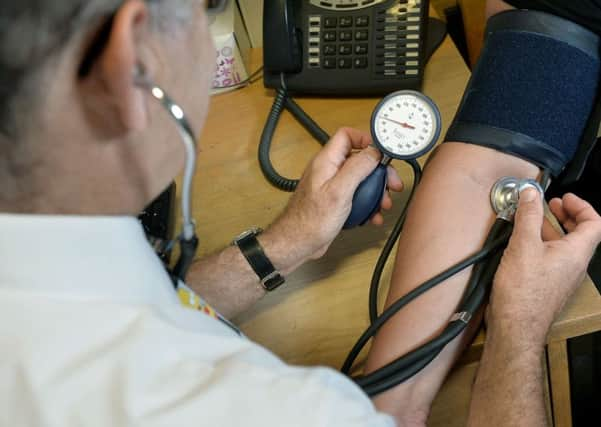Jayne Dowle: The doctor will see you now... but very briefly


A new survey by the Royal College of GPs finds that Britain holds a not-so proud record. Our surgery consultations are the shortest in the developed world, trailing behind Germany, France, Australia and the USA. Researchers found that 92 per cent of appointments were completed in less than 15 minutes, compared with 27 per cent in other similar countries.
Not good is it?
Beneath the bare facts lies a litany of issues which affect the way that GPs are forced to operate in this country, the birthplace of the NHS. As Dr Chaand Nagpaul, spokesman for the British Medical Association, puts it, we have fewer doctors than other European nations, and we have far fewer hospital beds than comparable countries such as Germany.
Advertisement
Hide AdAdvertisement
Hide AdWe also have huge problems recruiting and retaining medical staff, and face ongoing pressures from the Government. For years now, these pressures have been spear-headed by a Cabinet Minister who is consistent only in his arrogance towards highly-qualified and experienced practitioners.
Do you think Jeremy Hunt cares that the system is under so much pressure that patients are not even having the chance to tell the doctor what is wrong?
I don’t suppose he does. He doesn’t care about the punishing hours which junior doctors are expected to work, nor does he seem to have any conscience about closing or mothballing vital A&E services. Why would he bother about the patients? We’re far down the pecking order.
In the scheme of things, I suppose how long a person might spend talking to their doctor seems pretty insignificant. However, this misses the point. Unless it is a dire emergency, a GP consultation should be the most accessible point of entry towards treatment and advice. If this doesn’t work effectively, the whole point of a health service is undermined. How many life-threatening conditions are going undiagnosed because a person feels that their doctor simply doesn’t have time to listen?
Advertisement
Hide AdAdvertisement
Hide AdIt’s difficult enough to book a doctor’s appointment in the first place. When we finally get through the door, it is doubly galling to be dismissed and despatched as if we’re taking up too much precious time.
I must say we’re lucky with our own family doctor. I seem to spend more time at our local surgery with my teenage son than with any other family member, as he’s somewhat prone to sports injuries. Thankfully, the young male doctor we usually see never dismisses us with a cursory diagnosis.
Instead, he takes time to listen to Jack, and treats him with courtesy and respect. He’s even arranged for a course of physiotherapy treatment for his particularly troublesome knees.
Our surgery, however, is a training practice, that is engaged in mentoring junior GPs. Our privileged position becomes clear when I hear some of the horror stories from friends and neighbours, whose concerns have been dismissed with a cursory nod and a prescription for anti-depressants.
Advertisement
Hide AdAdvertisement
Hide AdOne family doctor of our acquaintance is known for dishing out such a prescription to anyone who turns up, without even glancing at a medical history or taking a thorough check of heart rate and blood pressure.
If this is the caring face of the NHS, then heaven help us all. I hesitate however to put all the blame on the doctors themselves. Let’s not forget the pressure they are each under individually. The way that GP surgeries are expected to operate these days leaves very little room for manoeuvre. It’s not just the growing number of patients coming through the door, it’s the time pressures doctors face on a daily basis, like the lack of administrative resources and the sheer stress of trying to work in a system which seems to work against their best efforts.
There are many problems which are insurmountable in the provision of health and social care. Another new report this week, this time from the National Audit Office, warns that progress with the integration of health and social care – known has the Better Care Fund – has, to date, been slower and less-successful than envisaged. This £5.3bn blueprint is failing to deliver the seamless service it should.
We could argue that plans on such an ambitious scale were always going to be difficult to put into place effectively. However, if the NHS can’t get the simplest things right, how can it be expected to roll out major structural changes? GP appointments clearly come into this category.
Advertisement
Hide AdAdvertisement
Hide AdPerhaps it is time to focus on this one thing then. If GPs can’t do their job, patients suffer. Surgery staff suffer. The NHS suffers. Our international reputation suffers. Just how much longer must we all suffer from a National Health Service which shows absolutely no signs of getting better?